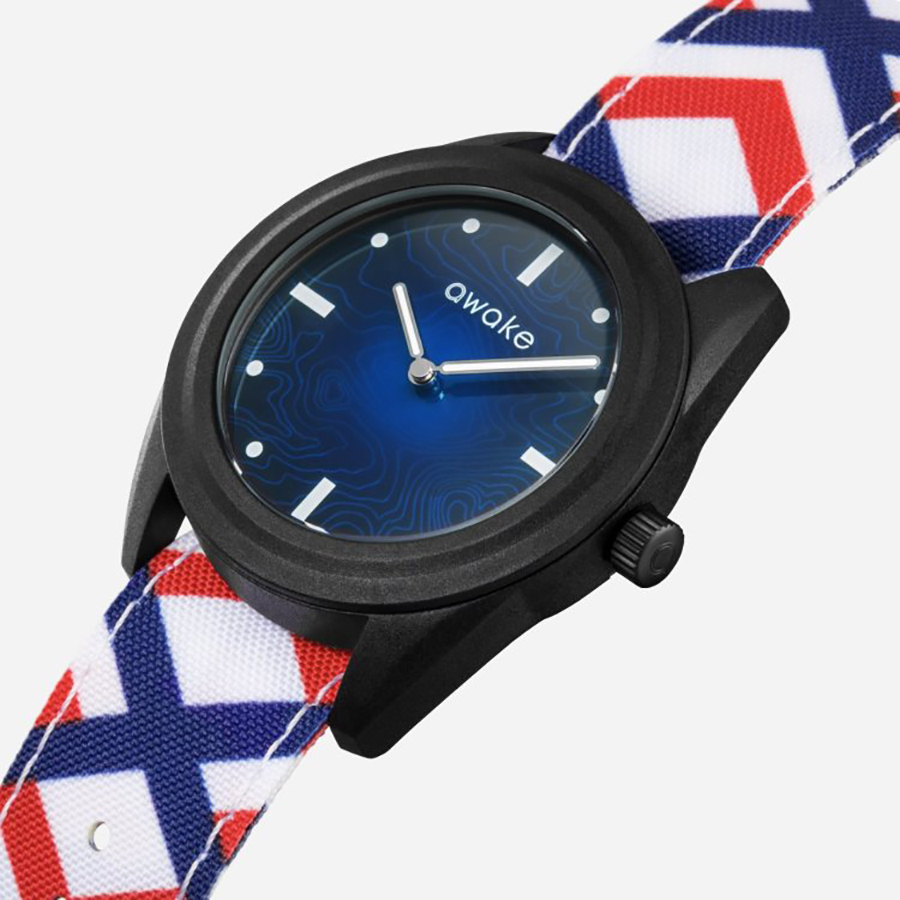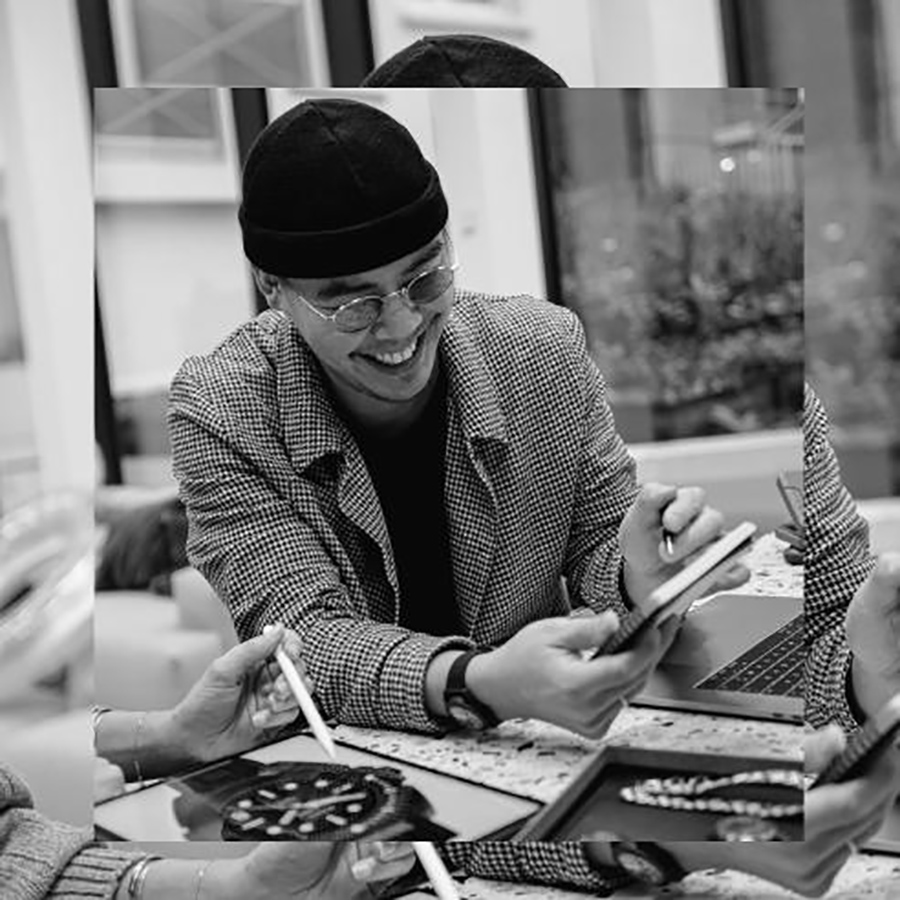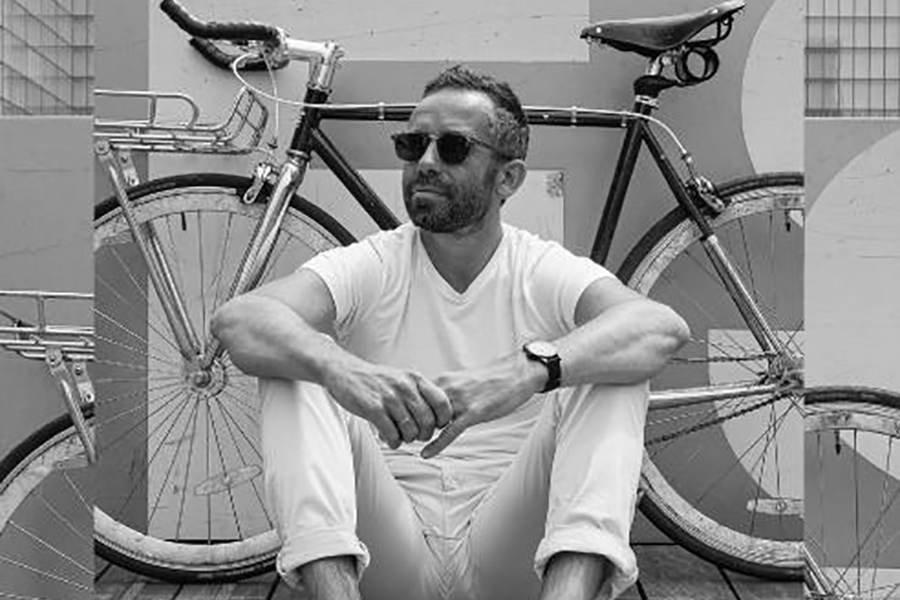At the G7 summit held in Biarritz, France in 2019, you may have noticed that heads of state received a watch from President Macron. One peculiar twist of this symbolic gesture was that the watch was made from plastic waste and abandoned fishing nets that pollute our oceans.
Making watches from recycled fishing nets and discarded plastic bottles from the sea is no small task. It’s a technical feat that requires new synergies between the recycling and watchmaking industries. Behind this unique product is Lilian Thibault (pictured above) and Frederic Ly, two French watchmakers and design enthusiasts who combined their efforts and skills to raise awareness around the environmental crisis. Their new watch brand is called AWAKE.
“We are aware that we can’t solve the environmental problem alone, especially around plastic pollution in our oceans,” explains Lilian Thibault. “Our idea is to show what’s possible, while making a contribution to solving this problem. A watch is a symbolic object in relationship to time, and therefore represents the urgency of the environmental challenge we must tackle.”
Following their initial idea in 2016, the entrepreneurs launched a crowdfunding campaign on Kickstarter in the summer of 2018. Eight hundred fifty-eight contributors and $307,080 later, AWAKE began production on the first 1,200 watches funded by the crowdfunding campaign. Within a few months, the young brand had sold more than 2,000, with a focus on direct sales via the Internet, and a few stores whose values were consistent with responsible consumption..

“Crowdfunding allowed us to raise seed funding while, at the same time, verify and validate the interest in our new product,” says Thibault. “It was difficult to know in advance whether the general public was ready for such a watch. The crowdfunding campaign also allowed us to highlight the care with which we designed our watches, because people often find it hard to imagine that beautiful and elaborated products can be made from recycling.”
Photovoltaics at the service of watchmaking
The watch cases are made from recycled steel and the wrist bands are made rom plastic waste collected from the oceans of Southeast Asia and Japan. The brand has spread a strong environmental message in Europe, especially because much European waste ends up in these oceans. The globalization of waste is a result of the low cost of plastic production, and is in stark contrast to what should be done: treating and recycling plastic waste locally — in countries that produce the waste.
A photovoltaic sensor built into the watch provides the energy necessary for movement. “Our watch never stops,” explains Thibault. “Three hours of exposure to light is enough to provide the energy for six months of operation. This distinguishes us from conventional models that run on batteries that need to be changed every two years; a system that most manufacturers opt for because of its low cost.”

Recognized and encouraged by the G7 organizers, the AWAKE team took their recycling philosophy one step further in 2019. In a world first, they produced a watch case made from recycled fishing nets. Abandoned at sea, fishing nets cause the unnatural death of millions of fish while generating pollution. In Biarritz, a maritime region that hosted the G7 summit, the watch was a hit. “The event gave us great visibility”, says Thibault. “Many investors contacted us afterward, but we have remained clear-sighted and loyal to the people who originally supported us during the early crowdfunding. This helps to keep our independence while maintaining the strong ethical dimensions of our brand.”
Artistic future
The team at AWAKE will continue to explore new materials and processes that combine recycling and watchmaking. Beyond the environmental awareness they are raising, it’s also a great way to diversify their watch range. A collaboration with an artist is also in the works.
A new fundraising campaign had raised almost one million euros by the end of 2019 and the brand has proven to be surprisingly resistant to the Covid-19 crisis, as it depends on very few physical points of sale. Thibault and his team have digitized watch sales from the beginning, and recognized that this is the future of buying in an increasingly online customer base. Initial funding was raised online and sales were a natural following-on. “This flexibility allows us to be confident about the future, while remaining faithful to our ethical values,” says Thibault.




































